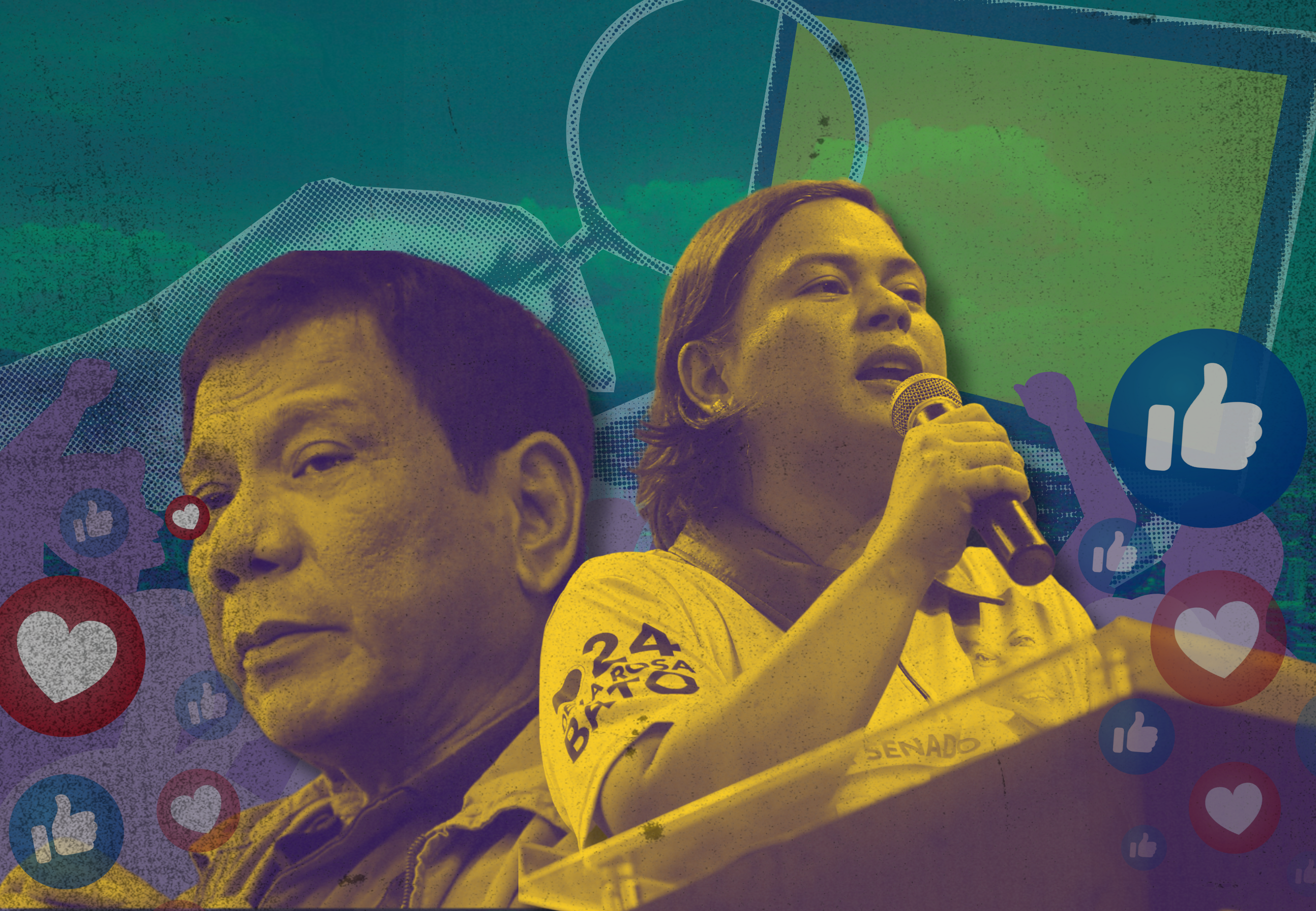Rappler and PCIJ: Detecting design for keeping Dutertes in the news
CHEERS TO Rappler and the Philippine Center for Investigative Journalism (PCIJ) for their respective in-depth reports analyzing the strategies of deceit employed by the Dutertes and their supporters to sustain publicity for the Davao-based political dynasty.
Rappler and PCIJ’s stories exposed the whitewashing of the family’s political sins. Both news organizations highlighted recurring patterns in Dutertes’ political campaigns online and offline and warned of the impact of such propaganda on the 2028 polls.
The Duterte playbook
PCIJ released a report on August 7 that traced five tactics used by Duterte supporters to proliferate disinformation and to shape public sentiment. The following were identified as common approaches used to justify both Sara Duterte’s impeachment case and Rodrigo Duterte’s ICC arrest:
- Denial of facts, outright rejection of evidence
- Obscuring the Dutertes’ financial and legal issues to cast doubt on the grounds for impeachment
- Deflecting blame, redirecting public attention by pointing fingers at others involved
- Emotional framing to cast Dutertes as victims
- Construction of conspiracy narratives and suggesting that the cases against Sara and Rodrigo Duterte are part of a larger political plot
Presenting concrete examples and research, PCIJ showed that the the Duterte-aligned network worked not just to sustain Duterte’s level of popularity; but to bolster his influence. PCIJ revealed how his supporters deployed disinformation to counter and to weaken efforts to hold the former president and his daughter accountable.
PCIJ’s discussion of Duterte’s playbook points to the importance of understanding disinformation and its capacity to promote political careers.
Deep devotion in Cebu
Rappler’s two-part investigative series traced how Cebu became “Duterte country,” spotlighting the dedication of Cebuanos to the former president, to his daughter Sara, including their political alllies in the province, primarily Gwendolyn Garcia, the former governor of Cebu.
The first piece, published on September 17, focused on the Bisaya stronghold, dissecting the cultural and regional dynamics that bolstered the Duterte appeal in Cebu. The second part of the series, posted on September 18, discussed the significant role of Facebook groups in sustaining Duterte’s influence online.
Rappler’s article explored the political, cultural, strategic, and even emotional factors that underlie Cebuano support for Duterte, including a quote from Rodrigo Duterte’s previous provincial campaign officer, Atty. Rex Fernandez: “…Aside from his being a Bisaya, Duterte has captured the hearts of many Cebuanos in his fight against illegal drugs, criminality, and corruption.”
Citing other analysts, the reports explained that these ties highly coordinated effort to connect to deeply felt sentiments such as populism, regional pride vs. a vs. an “imperial Manila.”
The report pointed to the campaign’s use of this bond to sustain the steadfast loyalty of the Cebuanos, a fealty that has not wavered in the slightest through nine long years, despite the Dutertes’ misfortunes.
Rappler also highlighted Duterte’s supporters’ use of Facebook to project his political profile, filling their FB accounts with emotion-charged content, absolving him of all guilt and upholding his “unsullied reputation.” The report cited political scientist Cleo Anne Calimbahin, who wrote in an article in the Carnegie Endowment for International Peace that such sympathetic framing fuels the idealization of Duterte himself.
Rappler showed how Duterte’s playbook deploys a range of strategies to sustain the appeal of the Duterte family as a potent political force, maintaining their capacity “to sway upcoming polls.”
Eyes on 2028
It is clear that the Dutertes’ disinformation campaign has targeted the upcoming 2028 national elections.
The situation calls the press to examine how well news rooms are set up to guard against political biases and partisanship in their news about politicians running for public office.

Leave a Reply